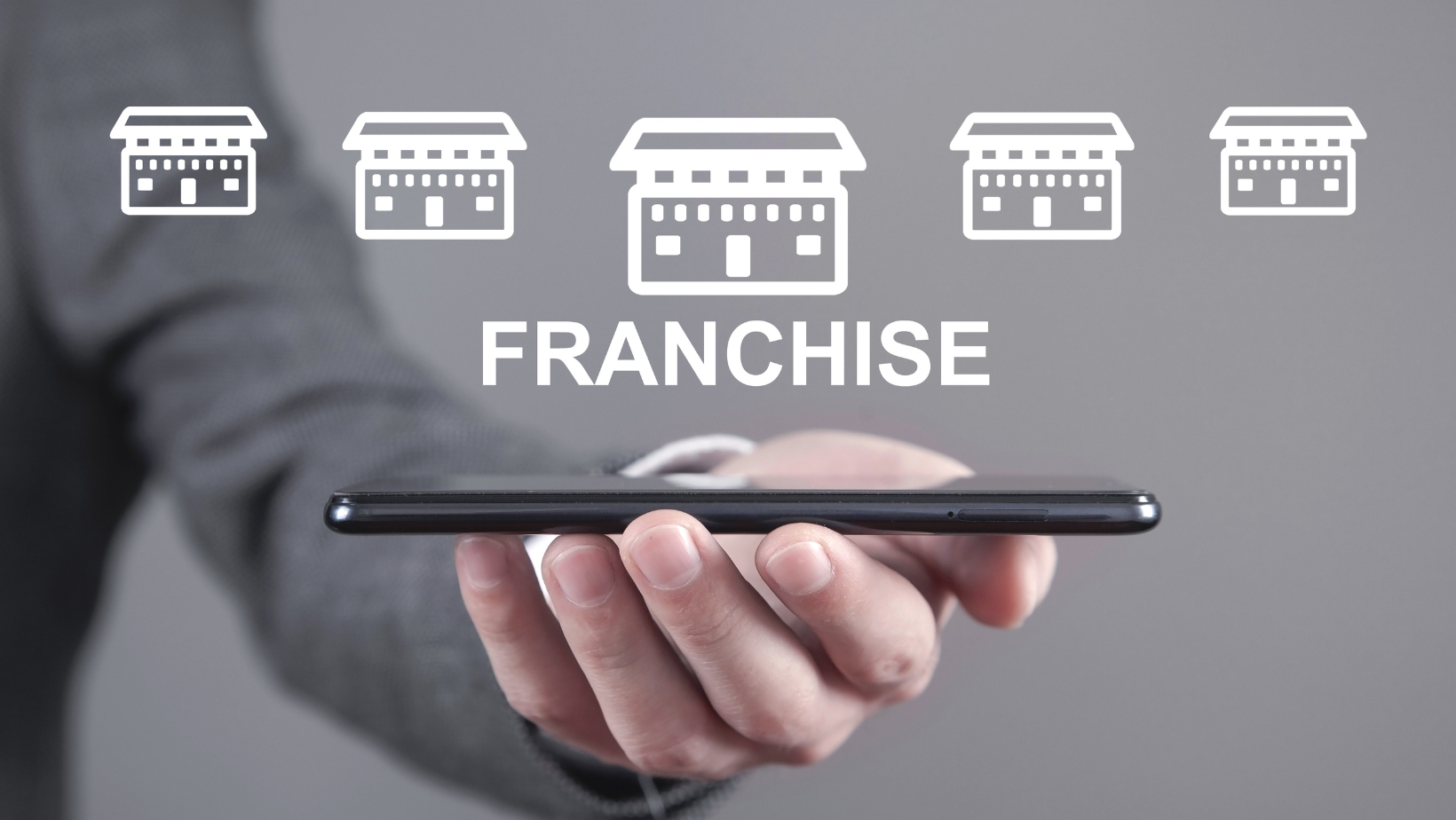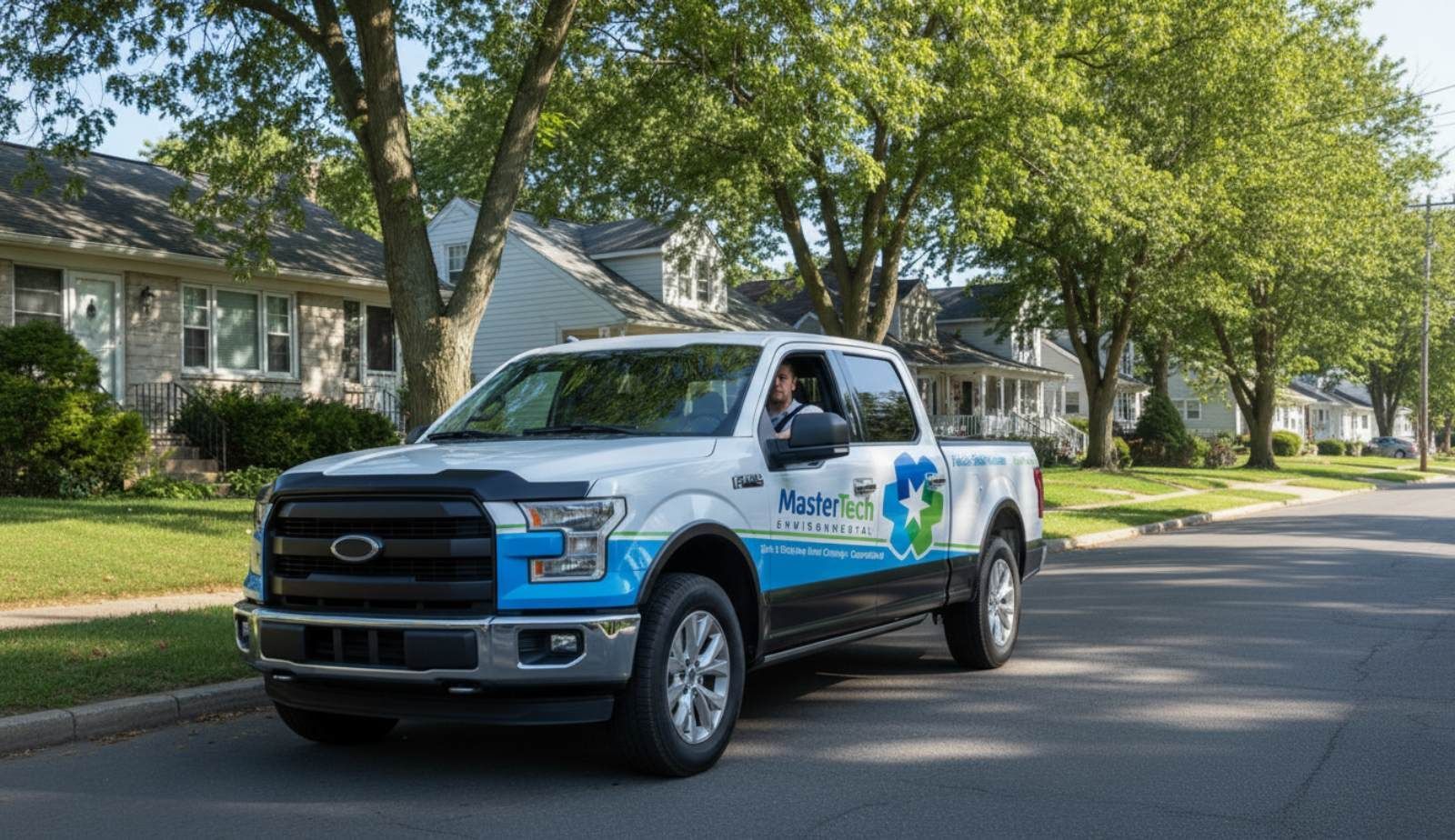6 Steps to Buying a Mold, Water, Fire, Bio Restoration Franchise
STEP 1: Making Franchising Work for You
Investing in a franchise should result in a mutually beneficial partnership. As a franchisee, it's crucial to comprehend your place in the franchising process, the franchisor's role, and the concept of franchising itself. This knowledge will assist you in determining if a franchise is the right fit for you, and what to look for when selecting one.
The Responsibilities of a Franchisee
A franchisee is someone who purchases a franchise, seeking new opportunities by joining an established brand like
Mastertech Environmental with a strong track record, an experienced team, and a plan for success. As a franchisee, you will be required to pay an initial franchise fee to join the franchise network. Furthermore, you should expect to invest your own time, management efforts, and capital into developing and opening your franchised business, as well as paying royalties and other potential fees to the franchisor after your franchise location opens.
Franchisees play a critical role in the expansion of a franchisor's brand and are, therefore, highly valued. Good franchisors invest a great deal of time and money into attracting franchisees who are properly capitalized and well-qualified and can add value, growth, and revenue to the business.
Understanding the Franchisor's Role
A
franchisor is a person or entity who offers the opportunity to own a franchise. For instance, the corporate team behind Mastertech. Franchisors provide franchisees with the necessary license and rights to open their own locations using the franchisor's established brand. A key aspect of the franchisor's role is to provide support, training, operation systems, supply chains, and economies of scale to assist franchisees in running their businesses smoothly and efficiently.
The benefits of working with a franchisor should ideally place franchisees in a much better position than if they had started their own business independently. However, success is never guaranteed and requires a thorough consideration of all factors. Prospective franchisees need to educate themselves about their industry, perform due diligence, work with qualified attorneys, and partner with franchisors whose goals and values align with their own before becoming franchise owners.
STEP 2: Conducting Research for Your Franchise Opportunities
To find the right franchise opportunities, you can use a variety of methods. Some of the most common include online ads, contacting franchisors directly, utilizing franchise portals, and working with franchise brokers. However, before making any decisions, it is important to conduct thorough research and do your homework.
Outbound Research
When conducting **outbound research,** prospective franchisees can go online and delve deeper into franchisors they are considering buying franchise opportunities from. This process typically involves searching for mentions of the brand on Google, visiting franchisor websites, and utilizing franchise portals.
Franchise Portals
Portal websites are useful for narrowing down your search to franchise opportunities that align with your goals, budget and interests. It is important to note that listings are typically paid for by franchisors seeking exposure for their brand, so it's essential to conduct independent research to ensure that any franchise you're considering buying meets your needs.
Franchisor Websites
Prospective franchisees should plan to do a deep-dive into the brands and opportunities they're interested in. When viewing franchisor websites, pay attention to content that introduces the management team, discusses the brand's culture and values, and highlights the successes of existing franchisees. It's also important to verify information through your own research.
STEP 3: The Importance of Franchise Brokers in the Franchising Process
Franchise brokers, also known as franchise consultants, are professionals who help connect qualified franchisee candidates with franchisors that align with their specific goals and interests. Partnering with a reliable franchise broker can be highly beneficial for franchisees, but it's crucial to ensure that the broker is committed to your success and maintains professionalism throughout the process. Prior to engaging with a broker, it's essential to understand their role in the franchising process.
What to Consider When Choosing a Franchise Broker
When selecting a franchise broker, it's important to look for brokers who are affiliated with an organization, stay up-to-date with continuing education, and have experience evaluating franchise opportunities. Additionally, reputable brokers prioritize the success of both parties and have a track record of success.
A good franchise broker will work with you to assess your objectives, capital requirements, preferred business types, and desired income generation or returns before recommending franchisors that meet your criteria.
Broker Fees and Commissions
Although many franchise brokers claim their services are free, it's crucial to note that brokers receive a commission from the franchisor after the sale of a franchise is completed. This commission can sometimes be half or more of the initial franchise fee, which is paid by the franchisee to the franchisor at the time of purchase. For this reason, it's vital to work with a broker who prioritizes the long-term success of both parties.
While franchise brokers can be invaluable for connecting with franchisors, prospective franchisees should still exercise due diligence by conducting thorough research and independently verifying any franchise opportunities before making a purchase.
STEP 4: Finding the Perfect Franchise Fit Based on Your Budget and Values
When considering purchasing a franchise, it’s important to assess whether your objectives are in line with those of the franchisor. To begin, evaluate your capital and financial requirements, then compare them to the capital demands and revenue potential of the franchise opportunity.
Assessing Capital
Capital is one of the most critical considerations when selecting the right franchise fit. During this phase, prospective franchisees should consider all of the capital accessible to them, such as savings, SBA loans, and other financing options. Ensure that you have enough capital to cover both the initial franchise fee and operating expenses after opening.
Franchise Investment Levels
The next stage of selecting a suitable franchise opportunity is determining your investment level. This is a function of capital assessment that aids prospective franchisees in determining how much they're willing to invest in starting and maintaining the business.
Financial Objectives
Finally, prospective franchisees should evaluate their personal financial objectives to make sure that they match the franchise opportunity's offerings. Whether you're looking to supplement or replace your current income, or seeking a better work-life balance, outlining your goals may assist you in determining whether the franchise opportunity is a good match.
Aligning Values with the Franchisor
Prospective franchisees should seek out franchise opportunities in industries that they find intriguing and that align with their values. For those seeking a high return on investment, franchises in more profitable sectors with greater profit potential may be a better fit. Alternatively, those seeking more work-life balance or a new career they're passionate about may benefit from franchises in different industries.
Regardless of what you're seeking from a franchise opportunity, it's important to seek out opportunities that correspond with your personal objectives in order to ensure the best fit.
STEP 5: Reviewing the Franchise Disclosure Document: A Step-by-Step Guide
If you're considering purchasing a franchise like Mastertech, there are a number of important considerations to keep in mind. One of the most crucial steps in the evaluation process is reviewing the Franchise Disclosure Document (FDD), a legal document that contains detailed information about the franchise's operations and financials. Here's what you need to know:
The FDD is provided by the franchisor.
Under federal and state franchise laws, franchisors are required to provide the FDD to prospective franchisees at the start of a mandated 14-day disclosure period prior to the sale of a franchise. This document is one of the first pieces of information you should expect to receive as a prospective franchisee.
Look for key items in the FDD
The FDD is a critical tool for evaluating a franchise opportunity. It contains important legal and financial disclosures that all franchisee candidates should review carefully before making any decisions about purchasing a franchise. Here are some key items to look for:
- Management and Fees: This section should include information about who the franchisor is, who the members of the franchise management team are, whether they're involved in litigation, and a list of fees including the initial franchise fee, royalties, and other business-related fees.
- Financial Data: Prospective franchisees can find important financial performance data about the franchise system under Item 19 of the FDD, including the gross sales or gross profits of the company-owned franchise locations. When reviewing the disclosures in this section of the FDD, it's important to exercise caution and scrutinize the data provided.
- Estimated Startup Expenses: Item 7 discloses the estimated startup expenses for the franchise, including three months of reserve capital. By reviewing Items 19 and 7, prospective franchisees can get an idea about whether the franchise's financials and income potential align with their own capital requirements prior to making the purchase.
By following these steps, you can make an informed decision about whether a particular franchise opportunity is right for you.
STEP 6: Attend Discovery Day
If you're interested in buying a franchise, attending a discovery day is an essential step. This is when you'll meet with the franchisor in person and learn more about their system. During the discovery day, you'll be visiting the franchise headquarters to meet with the management team in person.
Key Questions to Ask at Discovery Day
As a prospective franchisee, it's important to ask the right questions to get a solid understanding of whether the franchisor is a good match for you. Here are some of the key questions to consider asking:
- **Level of Support:** Ask about the level of support the franchisor provides to existing franchisees and how they plan to support your own location's future success. Find out how they plan to help your location attract business and stay on the right track, including support for marketing.
- **Capital Requirements:** Ask about the financial data from Item 7 and Item 19 in the FDD and whether it will be sufficient to operate your franchise location successfully.
- **Culture and Values:** Inquire about the franchise system's culture and values. Pay attention to the management team's responses and interactions to see if their values align with yours.
By having candid conversations and asking in-depth questions about the franchise system and its operations, culture and values during the discovery day, you will be able to make a well-informed decision about whether the franchisor is a good fit for you.
For more information about Mastertech Franchise Systems, call 800-559-5338 or click here to get in touch: https://www.mastertechfranchise.com/contact-us
Get in Touch
Contact Us
Don't be a stranger!
30 Broad St, Unit 7
Denville, New Jersey 07834






